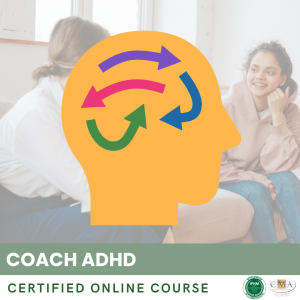Sub-module 4.10 – Strategies for adapting to major life changes
Grieving is a major upheaval that confronts the bereaved person with multiple changes in their life. These changes can affect their roles, relationships, identity, lifestyle, or even their beliefs. To navigate this transition period and regain balance, it is essential to develop effective coping strategies. The GRIEF COACH can help bereaved individuals identify and implement these strategies, considering their resources and specific needs.
A first adaptive strategy involves accepting and embracing the emotions related to grief, rather than trying to avoid or control them. Grief often comes with a range of intense and sometimes contradictory emotions, such as sadness, anger, guilt, anxiety, or relief. Attempting to suppress or deny these emotions can lead to mental exhaustion and complications in the grieving process. Conversely, welcoming them with kindness and expressing them appropriately can help soothe them and give them meaning. For instance, a bereaved individual may keep a diary to put their feelings into words, practice mindfulness exercises to observe their emotions without judgment, or participate in support groups to share their experience with others going through the same ordeal. The GRIEF COACH can encourage them to explore different ways of managing their emotions and find what suits them best.
Another important coping strategy is to mobilize one’s social support network. Grieving can be a very isolating experience, especially in a society that tends to marginalize death and the bereaved. Yet, support from loved ones, friends, colleagues, or professionals can be a valuable resource for coping with this ordeal. This support can come in various forms, such as empathetic listening, practical daily help, moments of shared comfort, or informed advice. For instance, a bereaved individual may ask a friend to accompany them in administrative procedures, organize regular meals with their family to maintain connections, or seek help from a psychologist to work on specific aspects of their grieving. The GRIEF COACH can assist them in identifying resourceful people within their circle, clarify their needs, and dare to ask for help when necessary.
Taking care of oneself both physically and psychologically is also a crucial coping strategy. Grieving is a taxing experience that can impact health, causing sleep disorders, loss of appetite, chronic fatigue, or a decrease in immunity. Neglecting basic needs can worsen these symptoms and delay the healing process. On the contrary, adopting health behaviours such as balanced eating, regular physical activity, periods of rest and leisure, or relaxation practices can help to enhance resilience in the face of grief. For instance, a bereaved individual might force themselves to eat regular meals even without an appetite, practice walking or yoga for relaxation, allow themselves moments of break in nature, or learn meditation to calm their mind. The GRIEF COACH can encourage them to prioritize their well-being and experiment with different self-care approaches suited to their situation.
Cultivating spirituality or a life philosophy can also be a potent coping strategy in the face of changes related to grief. The loss of a loved one often confronts individuals with existential questions about the meaning of life, death, suffering. It can shake up the beliefs and values that were reassuring anchors. Finding or renewing a spiritual or philosophical anchor can help give meaning to this ordeal and tap into inner resources. This can include practicing a religion, adhering to a life wisdom, engaging in altruistic causes, or connecting with nature and art. For instance, a bereaved individual might find solace in prayer or meditation, reconnect with humanistic values, commit to a charitable organization in memory of the deceased, or contemplate the beauty of a landscape to marvel at life despite the loss. The GRIEF COACH can invite them to explore their deep aspirations and cultivate nourishing practices for their soul.
Finally, a crucial coping strategy is to learn to live with the loss and reinvest in life despite the absence. Grieving involves mourning not only the loved one but also the life that was shared with them and the plans that were imagined together. The challenge is to find a delicate balance between maintaining an intimate relationship with the deceased and opening up to new possibilities for oneself. This can include rituals to honor their memory, imaginary dialogues to maintain the symbolic relationship, and also new emotional and social commitments to rebuild and give new meaning to one’s existence. For example, a bereaved individual may create an altar for regular moments of reflection, write letters to the departed to share their progress, but also allow themselves to laugh and make new plans, meet new people and discover unsuspected talents. The GRIEF COACH can accompany them in this creative process of reclaiming their life, helping them reconcile the legacy of the past and the promises of the future.
In conclusion, the coping strategies related to grief-induced changes are multiple and complementary. They aim to mobilize the emotional, relational, bodily, and spiritual resources of the individual to help them navigate this ordeal and turn it into an opportunity for growth. The role of the GRIEF COACH is to help the bereaved identify and appropriate the strategies that best suit their uniqueness, guiding them with kindness and discernment. The goal is to accompany them step by step through the grieving process, ensuring to respect their pace and needs, but also to stimulate their creativity and life drive. For if there is no miracle recipe or ideal grieving process, there is in everyone a life force that only asks to be supported and deployed, even and especially in adversity. Accompanying grief is thus about helping the other draw upon this force and give it form in a new life project filled with meaning and hope.
Points to remember:
– Grief confronts individuals with multiple life changes that require effective coping strategies.
– Accepting and expressing emotions rather than suppressing them helps to soothe them and find meaning.
– Mobilizing one’s social support network (family, friends, professionals) is a valuable resource for navigating grief.
– Taking physical and psychological care of oneself (nutrition, physical activity, relaxation) enhances resilience in the face of grief.
– Cultivating spirituality or a life philosophy can help make sense of the ordeal and tap into inner resources.
– Learning to live with the loss involves maintaining an intimate link to the deceased while opening up to new possibilities for oneself.
– The GRIEF COACH accompanies the bereaved step by step, helping them identify and adopt strategies suited to their uniqueness.
– Despite the lack of a miracle recipe, everyone harbours a life force that can be supported and activated for rebuilding after grief.
👉 To download docx (Editable) file click here : Click here
👉 To download PDF file click here : Click here
👉 To download MP3 file click here : Click here






